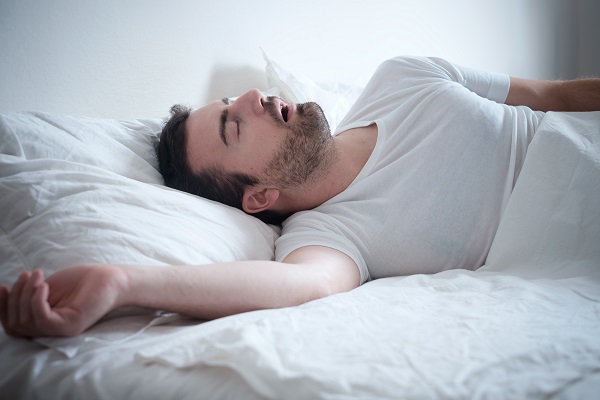How Dental Oral Appliance Therapy Can Help With Sleep Apnea

Sleep apnea is a serious medical condition that can be treated through dental oral appliance therapy. There are a lot of options when it comes to sleep apnea therapy, but oral appliances happen to be one of the most common ones. They have proven success and are relatively easy to use.
Want to learn more about dental oral appliance therapy for treating sleep apnea? This information can be helpful to patients who may not be sure what type of treatment is best for them.
How dental oral appliance therapy can help with sleep apnea
The information below explains how different dental oral appliances can be used to treat sleep apnea. Keep reading to find out more!
Tongue-retaining device
Tongue-retaining devices are a special oral appliance that helps patients who are suffering from sleep apnea. This oral appliance closely resembles a pacifier, but it has a hole in the center, in which the tongue sits in. Within dentistry, these devices are also referred to as oral splints.
The purpose of a tongue-retaining device is for it to hold the tongue forward, preventing the airway to get blocked off. Patients keep it in their mouth throughout the night so that the tongue remains forward while sleeping.
A common problem that can cause sleep apnea is snoring. With this oral appliance, the patient is less likely to snore because the mouth is held a certain way, which allows for more airflow to the back of the throat.
MAD: mandibular advancement device
Another very popular method of oral appliance therapy that is used to help with sleep apnea is a mandibular advancement device. These oral appliances look very similar to a night guard or mouthguard.
The MAD snaps into place right over the upper and lower dental arches, and they typically have small metal pieces on either end. These metal pieces ensure that the lower jaw will ease forward while the patient is sleeping. Certain types of MAD oral appliances are even created with the ability to have more control, which can provide more advancement of the jaw itself.
Oral appliance therapy
Depending on the severity of the sleep apnea, the dental professional may recommend a certain type of oral appliance that is patient-specific. However, both mandibular advancement devices and tongue-retaining devices are customized to specifically fit the patient’s mouth. This customization allows for a perfect fit so that the airway is less likely to become obstructed.
Dental oral appliance therapy is a great place to start when trying to remedy or treat sleep apnea. The condition itself can be very dangerous, but with the help of an oral appliance, the chances of sleep apnea symptoms, are much less likely.
Contact us today!
Any questions or concerns regarding oral appliances to treat sleep apnea should be addressed by a dental professional. Our team is readily available to help you! Reach out to our office today so that we can get you started with oral appliance therapy. Give us a call or stop by!
Request an appointment here: https://www.smilebeautification.com or call Precision Smiles. at (201) 204-1355 for an appointment in our Hackensack office.
Check out what others are saying about our dental services on Yelp: Oral Appliance in Hackensack, NJ.
Recent Posts
If you are struggling with sleep apnea, you need to address the condition right away. This is not an issue that will generally go away on its own. It is also a serious problem that can lead to severe health challenges. Luckily, your dentist is a good resource to turn to for help. Your dentist…
OSA, or obstructive sleep apnea, is a health issue that should receive proper treatment. Your dentist can help you manage this disorder with the proper dental appliance. The oral device will be custom-fit for your needs. Here are the dental appliances that can help with your sleep apnea.This problem involves the blockage of the airways…
Sleep apnea, also called obstructive sleep apnea (OSA), is a common condition that affects more than 50 million people in the United States and more than 1 billion people worldwide. In this review, we discuss the signs of sleep apnea that indicate a need for a professional diagnosis.The most common indicators of sleep apnea are…
Sleep apnea is a disorder in which your breathing stops and starts periodically throughout sleep. When this occurs, your body awakens you and tells you to start breathing again. Repeated sleep disturbances make it harder to sleep properly, and you will be especially fatigued throughout the day.Sleep apnea affects you beyond daytime fatigue. Without treatment,…


